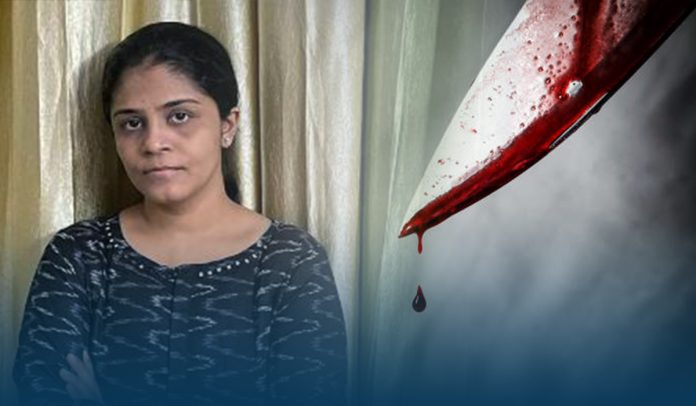A 38-year-old death row prisoner, Shabnam Ali, facing execution in India has appealed for mercy and her case’s review in a last-ditch effort to avoid becoming only the second woman to be hanged in the country in the past seventy-four years.
Shabnam Ali has been detained in northern India’s Mathura jail for the past eleven years after Ali, along with her lover Saleem, was convicted of killing 7 family members, including her parents, two brothers, and a ten-month-old nephew.
Neighbours woke to a woman’s cries for help just after 2 AM in a village in the northern Indian state of Uttar Pradesh, Bawan Kheri. Sleepily, they emerged from their houses to find a horrific scene of mass killing.
What was Shabnam Ali convicted of?
One of the first to appear at the two-story family house on April 15, 2008, Lateef Ullah Khan found villager Shabnam Ali lying unconscious on the floor near Shaukat Ali (her father), whose neck was slashed.
Shabnam Ali along with her lover Saleem was convicted of killing seven members of her family in 2008, father Shaukat Ali, 55, mother Hashmi, 50, elder brother Anees, 35, Anees’s wife Anjum, 25, younger brother Rashid, 22, cousin Rabia, 14, and Anees’s 10-month-old son, Arsh.
Court documents showed that the bodies of Shabnam Ali’s mother, her two brothers, sister-in-law, and fourteen-year-old cousin lay almost be-headed in a blood-spattered room. Her baby nephew appeared to be sleeping between his parents’ bodies.
The case hit headlines that not only had she murdered 7 of her family members, including a ten-month-old child, but she was two months pregnant at the time. She and her lover, Saleem, were found guilty of the killings and sentenced to hang.
And if she is executed, Shabnam, who, like her lover, is only referred to in court documents by one name, would be the first woman given the death penalty in India since 1955.
But with Shabnam’s execution looming, her legal team is trying to stop it and is arguing that she is a victim, too. Moreover, Lawyer Shreya Rastogi says her client has never admitted to the crime. She is a casualty of a male-controlled society that puts caste above all else.
Besides the people who lost their lives that night, the couple’s crime created another victim, their son, Bittu, who Shabnam Ali raised in prison before giving him up.
Now 12, Bittu is appealing to Ram Nath Kovind, Indian President, to show his mother mercy.
Why Shabnam Ali and Saleem did it?
Saleem and Shabnam were young lovers who lived in the same village, but their families disapproved of their union.
Shabnam was 22 at the time of the murders and was an educated teacher from the Saifi community. Whereas Saleem, then 24, was a jobless Pathan youth.
Before the killings, the father of Shabnam Ali’s deceased sister-in-law Anjum, Lal Mohammad, tipped off the police department about the couple’s relationship.
According to his witness statement at her 2008 district court trial, Mohammad re-called Anjum saying, Shabnam Ali is going in the wrong direction. She wants to marry her lover, Saleem, and the atmosphere at home is agitated.
Nischay Tyagi, a fellow teacher at the school where she worked, testified that Shabnam Ali had told him that she wanted to marry Saleem, but her family opposed it. Shabnam’s cousin Sukkhan Ali told the court that Saleem would often come to Ali’s house to meet her. Sukkhan said that her father didn’t like that and beat her.
The court heard there was something Ali’s family did not know. Shabnam Ali was already pregnant with Saleem’s child.
The district court judge SAA Husaini observed in his ruling that locals wouldn’t have been able to accept the ‘haram’ or illegitimate act, referring to their unborn child. Shabnam Ali and Saleem’s son, Bittu, was born in prison in Dec. 2008, eight months after the killings.
How did Massacre happen?
The court found that on 14th April 2008, Shabnam Ali laced her family’s evening drinks with a sedative her lover bought with the help of a fruit-seller. Then, as the family slept, Shabnam Ali called her lover, who arrived with an ax.
Saleem confessed the day after the killings to Bilal Ahmad, a tea seller with connections to the district police chief, that Ali held up the heads of each member one by one, and he slashed their throats and murdered. The court also heard Saleem had hoped Ahmad’s networks would help him evade punishment.
Instead, Ahmad reported Saleem’s confession to the law enforcement and re-counted in the court what Saleem had told him. Saleem stated he had made a mistake; he is in love with Shabnam Ali, a girl from his village, and loves him. They have promised to live and die together. They can’t live without each other. Because of that, Shabnam Ali’s family beat her up and said that they would not let her marry him.
Moreover, other witnesses placed Shabnam’s lover at a pharmacy on the day before the killings, but the pharmacist refused to sell him any sleeping pills. Typically, in India, potent sedatives can only be sold with a doctor’s prescription.
The court heard that Saleem then asked for help from a fruit-seller outside the shop, who helped buy the pills.
Saleem also confessed the crime to Mahender Singh, a village administrative official, the day after the killing, asking him to use his political links to keep him out of jail, Singh testified in the court.
After the law enforcement arrested him, Saleem retrieved a blood-stained ax from a pond that was consistent with the murder weapon. According to court documents, empty packets of the pills used to sedate the family were recovered from Shabnam.
When the neighbor, Khan, arrived at the house, he stated he found Shabnam Ali unconscious.

Source: Web
The Supreme Court, however, noted in its 2015 finding that Ali had pretended unconsciousness and laid by the side of the dead father’s mutilated body to insinuate that an outsider had committed the crime heartlessly.
Yet, while Saleem and Shabnam had allegedly killed so they could be together, they turned on each other in the trial. Shabnam Ali alleged her lover alone had killed everyone. Saleem said that Ali had been drinking wine and called him after killing her family, asking Saleem to get rid of the evidence.
The district court found them guilty of killing 7 people and sentenced them to death by hanging. They appealed to the Uttar Pradesh High Court and the country’s highest court, the Supreme Court of India, but their innocence claims were dismissed each time.








